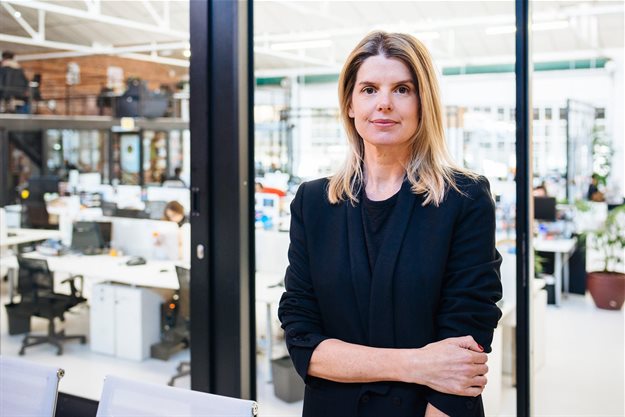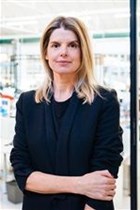#BizTrends2020: The collective economy, attributing a state of mind

Ownership open-sourced: a state of mind
The sharing economy is nothing new. Uber, Airbnb, co-working spaces, P2P finance and progressive government are a few topline examples that are unlocking value via the 'we economy'. Yet open-source ownership doesn’t only need to be applied to tangible assets but to intellectual assets too. If we apply the same expansive, collaborative thinking in the digital industry, we can drive growth and innovation in our industry in new and exciting ways, and with the millennial mindset leading this space and 50% of South Africa’s population under the age of 30, this is not a state of mind to be ignored.
The collective economy: wear a helmet
Like the sharing economy, the collective economy also works within a coordinated and shared system, but here we refer to the co-ordinated effort of those individuals involved to move a common purpose forward. It embraces all the private economic initiatives, which are geared to the collective interest and support rather than profit seeking. Such actions can concern a wide range of sectors: production and craft trades, commerce, finance, access to basic economic and social rights.
Leaning on Kate Darby’s (designer and founder at Dovetail X | The Drum 50 Under 30 Global Outstanding Women in Creative) Tour de Workforce Peloton metaphor:
The peloton is a big pack of cyclists who move together through most of the race. The slipstream created by the peloton can create up to 40% less drag. Over miles and miles of gruelling hills, it is the difference between finishing and shrivelling up on the side of the road. This is what makes the peloton so interesting. These cyclists are competing against one another, but co-ordinating with one another. They know that working together helps them do much better than they ever could on their own. The collective economy is the peloton. It’s the co-ordinated effort of all the individuals to move forward, all while staying on your own bike.Kate continues to acknowledge that the collective model isn’t new. “Collectives already exist in the form of credit unions, worker co-operatives and artist collectives. These collectives might be as short as one project, or become an ongoing community that collaborate often.”
I would add that while the collective economy is not immediately in pursuit of profit, the long-tail outcome of this co-ordinated effort and open mindset would create progress and growth for those involved, with a net profit or growth effect at a point down the line. Comparable to including a collective of channels, screens and devices in an integrated marketing campaign, and then potentially only looking at immediate impact and misattributing ROI or understanding of the full impact of customer lifetime value.
The collective in action: inside industry
While integration, consolidation and merging of expertise, departments and companies in our industry are increasing, these once clear landmarks in sector, company, department or skill ownership have prevailed. At the IAB SA, even our membership-types tick the traditional boxes of publisher, agency, brand, technical, education, specialist, with no option to tick more than one box. Yet, our task-oriented councils and committees are made up of a combination of multiple stakeholder sets and achieve so much because of this diverse mindset collective, as a peloton in action.
Transcending industry: the outside in
“Scrolling through articles concerning the digital industry in South Africa, it's quite clear that we're able to articulate a lot of the problems that we face in great detail,” said IAB Innovation Council lead, Lorraine Landon (head of agencies at Google SA). “Very rarely are practical solutions suggested in a way that are immediately applicable to the problem at hand.
“One of the main principles of design thinking is the concept of parallel universes, where people who work outside your current ‘universe’ or industry are consulted to provide insights that may help you look at your challenges differently. The Harvard Business Review wrote an article in 2016 talking about how crossing over from one field to another and meeting people from these fields lead to solutions never seen before. Currently, there are South Africans putting their minds to solving big problems and embracing innovation in all fields and industries. The point is to open our minds to other possibilities in problem solving – perhaps we'll find solutions to long-discussed digital challenges in agriculture, banking or fashion.”
Transcending hierarchy: the upside down
Traditionally there have always been very clear boundaries around hierarchy in our industry. While respect and accountability are part and parcel of good business practice, status or authority on different subjects, perspectives and mindsets are required to problem solve effectively. Deloitte’s Millennial Advisory Board is a prime example of bringing this thinking into action, one which we are applying at the IAB SA in 2020.
Attributing a state of mind: the collective paradox
The lines between ownership are blurring and new cultures are forming to address the pace, scale and economy required to successfully deliver on business objectives in today’s context. I believe an open mindset is required to collectively race together and to collectively benefit from the process.
In a stretched economic climate, when everyone is doing their best to claim their share of the territory to succeed, it seems the only way to achieve this with long-term and sustainable success, is to share resources, release traditional designations and linear operating models and to collectively drive solutions while co-operating across industries, collaborating with your competitors and letting go of an ownership state of mind, with the knowledge that it might need a long-term view in attributing an exponential return of the collective mindset.
For more:







































